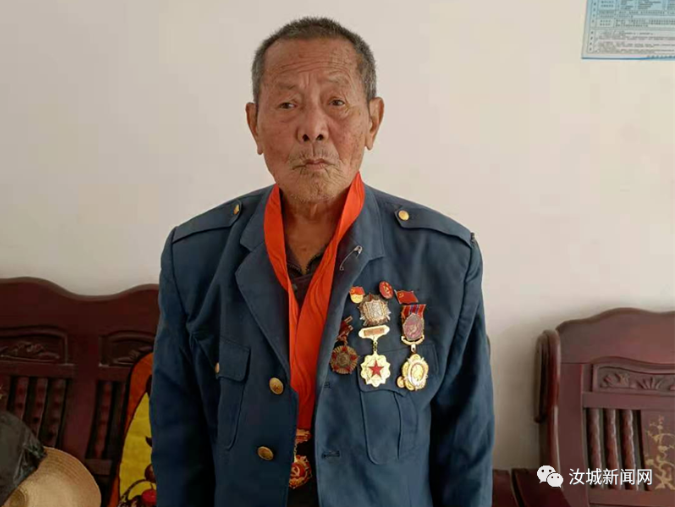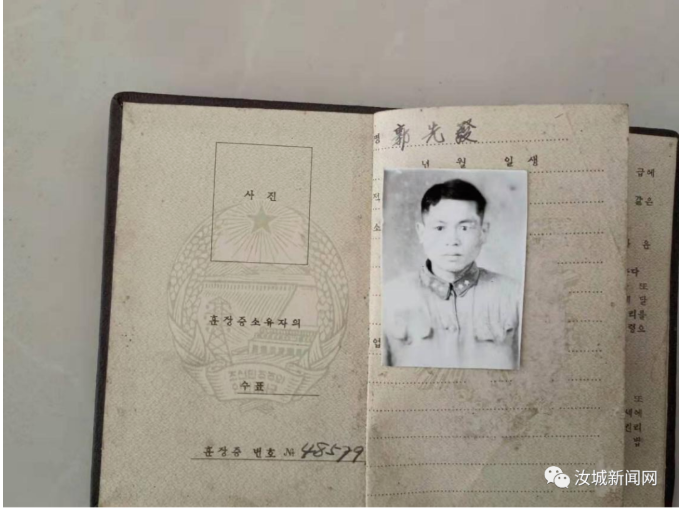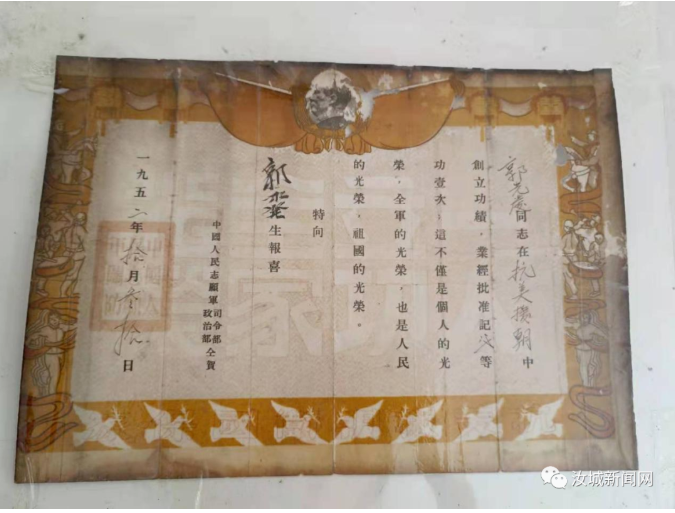CPV soldier tells glorious story
2021-07-14
Guo Xianfa, a veteran of the War to Resist US Aggression and Aid Korea in Yanshou Yao Township, Rucheng County, wears the commemorative medal of "Glorious 50 years as a CPC member".

At a ceremony held in Rucheng County to honor CPC members bearing five decades of Party membership with memorial medals, 93-year-old Guo Xianfa, wearing many commemorative medals, walked tremblingly onto the stage with a cane. He could not help but shed hot tears and began to recall the glorious story.
In May 1928, Guo Xianfa was born in a poor family in Dongshou Village, Yanshou Yao Township, Rucheng County. In March 1951, he joined the Chinese People's Liberation Army (PLA) and was assigned to Company 6, Battalion 2, Regiment 6, Hunan Military District. Thereafter, he participated in the fourth and fifth battles in the War to Resist US Aggression and Aid Korea.
During the cold winter, three tough battles left the Chinese People's Volunteers (CPV) army drastically reduced in numbers and extremely fatigued. To make matters worse, they also faced extreme difficulties such as difficult construction of fortifications, longer transportation lines, lack of food, and frequent food cuts.

"200 grams of rice and wild vegetables were what we had for one day," said Guo Xianfa. At that time, many soldiers could not have a hot meal or a sound sleep for 10 days or so. They didn't dare to eat the dry food that they had to save for the front line. As a result, thousands of them got intestinal infections and dysentery.
During a food delivery, Guo Xianfa and other soldiers were attacked by U.S. warplanes. The food delivery vehicle was blown up, with fire instantly swallowing the entire carriage.
During wartime, food is the lifeblood of the troops. Guo Xianfa, who was only a fresh recruit at the time, rushed to the carriage with his comrades without second thought. Braving the thick smoke, they put out the fire and saved the precious food. As a result, Guo Xianfa was awarded second-class merit in 1952, and joined the party in 1953.
Looking back on this thrilling story, Guo Xianfa looked very calm. He said, "On the battlefield, the soldiers have to be ready to sacrifice at any time. We must charge forward at critical moments, and make sacrifices in times of danger."
Today, Guo Xianfa can only walk trembling with a cane. He said, "My legs were frozen during the war, and they still hurt a lot. But compared to my comrades who died in the war, I am lucky enough."

During the war, U.S. aircraft often flew at ultra-low altitudes to clearly find their targets. For not being discovered by the enemy, Guo Xianfa and other soldiers hid in the snow without any movement, despite the difficulties such as mosquito bites, sweltering heat, thirst and the torment of casualties and wounds. Some soldiers were shot in the legs and even burned alive by bombs, but they still didn't dare to make any noise. Guo Xianfa's legs were thus frostbitten, leaving him in lifelong pain.
"After the U.S. air strikes, the bodies of soldiers were seen everywhere, some with broken arms, some with lost thighs. The white snow was stained red with blood," said Guo Xianfa who choked back sobs. As a participant and survivor of the War to Resist US Aggression and Aid Korea, this experience is something he will never forget.
In 1955, Guo Xianfa returned to China with his troops, and in the following year he retired from the army to his hometown. Over the years, as a veteran soldier and old Party member, he has fully supported the development of his hometown. He often tells his war stories to Party members and young people to pass on the revolutionary spirit.

"Without the great revolution under the leadership of the Party, how could we have the happy days today?" said Guo Xianfa. He dried his tears, took out the certificate of merit issued by North Korea and spoke the Korean language he learned from the North Korean people. The bravery of the CPV soldiers who crossed the Yalu River more than 70 years ago is still vividly visible in this old man.




